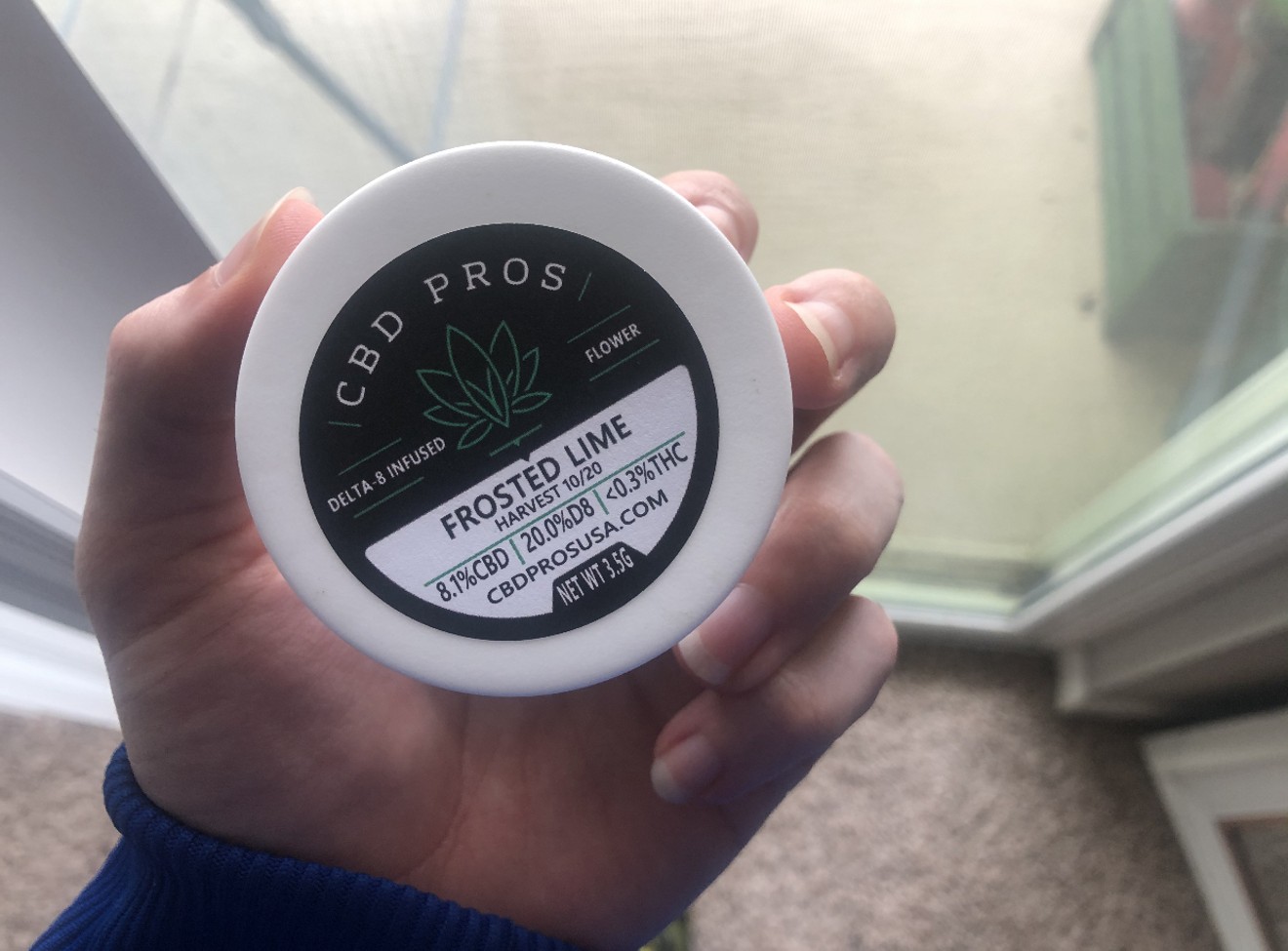The 2018 U.S. Farm Bill removed cannabis products containing less than 0.3% of THC from the Schedule I controlled substance list. A year later, Gov. Greg Abbott signed into law House Bill 1325, which legalized the growing of hemp that contains less than 0.3% delta-9 THC. But the state hadn’t said anything specifically about delta-8, which is less potent than delta-9, the chemical in marijuana chiefly responsible for getting users high.
Delta-8 is chemically similar to delta-9 THC but occurs naturally in plants in only small amounts. It can be derived chemically, however, from legal compounds found in hemp.
Manufacturers, arguing that federal law now allows for products derived from hemp, have ramped up production of delta-8 and other isomers of THC, except for the still-banned delta-9. Delta-8 has become a popular item in smoke shops around Texas. But the DSHS added a statement to its website that some say put questions over delta-8’s legality to rest.
The statement reads: “Texas Health and Safety Code Chapter 443 (HSC 443), established by House Bill 1325 (86th Legislature), allows Consumable Hemp Products in Texas that do not exceed 0.3% delta-9 tetrahydrocannabinol (THC). All other forms of THC, including delta-8 in any concentration and delta-9 exceeding 0.3%, are considered Schedule I controlled substances.”
DSHS has no regulatory authority over controlled substances, the statement said, so complaints regarding them should be referred to law enforcement.
DSHS told the Observer by email: “The statement was added to the DSHS website to clarify for consumable hemp product licensees and retail sellers that Delta-8 and all other forms of THC are still on the list of Schedule I controlled substances.”
You won’t find delta-8 mentioned specifically on the state’s controlled substances list. Instead, the entry for THC was changed to include isomers (chemical variants) like delta-8, delta-10 and others.
In May, Stephen Pahl, DSHS associate commissioner for consumer protection, provided testimony on delta-8’s legality to the Senate Committee on Water, Agriculture and Rural Affairs. He explained to the committee that the Drug Enforcement Agency modified its drug schedules to unschedule hemp and change the definition of lawful marijuana extracts to those containing no more than 0.3% delta-9 THC.
“It didn’t mention delta-8,” Pahl said. But state law allows the commissioner of health to object to federal drug schedules."Any association or attorney telling people that delta-8 is legal should publicly donate their time and money to the growing number of customers that have been arrested for delta-8 possession." - Texas Hemp Growers
tweet this
“Because of the way the DEA defined a marijuana extract as only delta-9 THC and because there are compounds, or isomers of THC, that have pharmacological or psychoactive properties, the commissioner of health opted to object to those schedules,” Pahl told the committee. “Essentially, what that means is delta-8 still remains on the Schedule 1 drug schedule.”
Shortly after DSHS added the statement to its website, Texas Hemp Growers, an association of farmers, manufacturers, retailers and consumers, sounded the alarm for its followers on social media.
“The position of Texas Hemp Growers, based on the most current information available from the Texas Department of State Health Services, is that delta-8, THCO, THCV, THCP, and other THC isomers above 0.3% delta-9 THC are illegal in the state of Texas,” the group wrote in a statement.
Texas Hemp Growers fought bills this year that sought to ban delta-8 and still supports full access to the hemp plant, “but we can't ignore the reality of the current position of the state,” the group said.
“Any association or attorney telling people that delta-8 is legal should publicly donate their time and money to the growing number of customers that have been arrested for delta-8 possession,” Texas Hemp Growers said.
Billy Franklin is the owner of Ojas CBD in Montgomery County. Franklin opened his shop in 2018 and said he’s not willing to test the boundaries of DSHS’ rule on delta-8 and other isomers.
“I already removed delta-8 [from my store],” Franklin said. It’s going to cut into his profits, but he said that’s better than getting arrested.
He said his plan is to weather this storm, diversify his businesses and play within the law. “We’re in the process of developing a gummy that will have a relieving amount of THC, but still falls under 0.3% delta-9,” Franklin said.
However, some are still holding out hope.
Vince Sanders, owner and founder of CBD American Shaman, says DSHS' decision flies in the face of the U.S. Farm Bill and Texas' HB 1325.
“When we were doing the hemp act, we put a lot of language in there, chemistry type language, to help prevent the FDA or the DEA from undoing what was written in the law through some technicality,” Sanders said.
As a result, HB 1325 defines hemp as “any part of that plant, including the seeds of the plant and all derivatives, extracts, cannabinoids, isomers, acids, salts, and salts of isomers, whether growing or not, with a delta-9 tetrahydrocannabinol concentration of not more than 0.3% on a dry weight basis.”
Sanders added that in the next few days, his company will send out a notice to the attorney general, DSHS and local law enforcement explaining these arguments and why they think delta-8 and other isomers are still legal in Texas.
“We don’t believe that DSHS has the authority to ban isomers or derivatives of hemp and other cannabinoids because it’s clear they’re legal in both Texas and at a federal level, so long as they came from hemp and there’s proof they came from hemp,” Sanders said.












